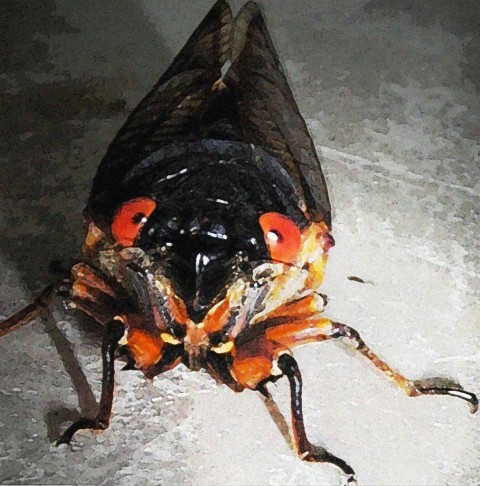Lissa was too old to be a flower girl. She heard her mother say to Aunt Jenny in the other room: “Janet should’ve made Lissa a junior bridesmaid. This flower girl nonsense is ridiculous. She’s already on the rag, for Christ’s sake.”
After that, Lissa felt strange wearing the white lacy dress. She felt large, like a pillow.
It was ok, though, because the ring bearer was also too old. He was tall and lanky with curly blond hair and lips the palest pink she’d ever seen. He swayed back and forth during the ceremony, so much that Lissa thought he was going to faint.
“Why is your name Lissa?” he asked her after the ceremony.
“It’s short for Elizabeth,” Lissa said.
“Why?”
She shrugged, annoyed. “What’s your name?”
“Charlie,” he said. “It’s short for Maxwell.”
She laughed, but Charlie didn’t. His face was blank. “It’s something my dad always says,” he said, digging around in his suit pockets and coming up empty. “Hey,” he said. “Do you want to see something I found earlier? It’s outside.”
She followed him, ditching the adults gathered in the church basement. The sun was high in the sky, and Lissa could feel its heat bouncing off the driveway onto her face. Charlie grabbed her hand and started running through the grass. His hand was damp and she had to hold on tight to keep from slipping.
All around them in the trees, Lissa could hear the screeching buzzing of the cicacads, so loud and constant she could almost tune it out, but not quite. Everyone was worried they would ruin the wedding.
It happened every 17 years, Lissa’s father had told her gleefully. The cicadas emerged from their cocoons, dumb as posts. Lissa’s father was a scientist of some kind, and he got excited about things like cicadas, while the rest of the city complained. Lissa’s mom had to unclog the dead cicadas from between her windshield wipers every morning. The live ones acted like unwanted house guests, smashing into the front windows, crawling along the trees, eating leaves without asking.
Lissa slipped from Charlie’s grasp just as he stopped running. They were beside a barn that was built over a small ravine with a creek that ran about four feet underneath it. The structure was straddling the creek on four large wooden drums. Lissa couldn’t figure out why anyone would ever build a house that way. The underside of the barn smelled like worms. She could see dark patches of mold on the red wood. Charlie knelt down, almost under the barn, his knees in the damp grass.
“Look,” he said. “Fish,” in a voice that made Lissa think he wasn’t as old as she’d first thought. “Do you think I could catch one?”
She shook her head. “You don’t have a pole.”
He was very excited. “I’ve got fish at home. Lots of them. Fish don’t breathe oxygen, they exhale it. They are the opposite of humans. Did you know that? They breathe carbon dioxide through their gills.”
Lissa didn’t know what to make of this. She could tell this guy was what her mother called “different,” like a girl Sue Frazzle in school that walked with metal braces on her feet. Charlie wasn’t quite like Sue, though. He was cute, and he held her hand, and when he turned a certain way he looked a lot like a guy she liked on a TV show.
Lissa heard a loud buzz in her ear and then a cicada, slow and stupid, landed on one of the lace panels of her dress, its wings shining yellowish orange in the sun. She imagined what it would be like to wear an entire skirt made of cicada wings, like a beautiful exotic disco ball.
Charlie pointed at the insect and snorted, his hands flailing madly. Lissa shooed it away, suddenly ashamed.
“I’m going to catch us some fish.” Before she could stop him, he slipped under the barn and then slid on his rear end down the gully, unable to stop himself from splashing feet first into the creek. “Charlie! Come back here now,” she said, sounding like her mother.
She waited. The barn reminded her of one she’d seen once in a scary movie she snuck in to with her friends. The killer in the movie kept young women in the barn and sang them lullabies. Lissa shivered. The cicadas seemed to get louder, a giant angry chorus of insects all yelling at her at the same time. Finally, Charlie scrambled back up the ravine. His suit was muddy and ruined, water dripping off the ends of his sleeves. He grinned at her. “The fish,” he said. “They’re afraid of me.”
“I’m afraid of you, Charlie,” Lissa said. It was both true and untrue. She thought again about the cicadas, how they came out every 17 years and how that seemed like an awfully long time to wait to just fly around some and die. The next time they came she would be 30 years old, a different person. She would be married by then.
Charlie reached into his wet suit pocket and started laughing again. Like a magician, he pulled out his hand and held out something to her. It was a wet, flopping, pale grey fish.
“A present for you!” he said. Lissa held it for a moment. It felt slimy and cool in her hand, and she could feel its heartbeat, its panic. She tossed it under the barn back into the creek. Then she grabbed Charlie’s head and pulled him toward her.




 The core workshop of SmokeLong Fitness is all in writing, so you can take part from anywhere at anytime. We are excited about creating a supportive, consistent and structured environment for flash writers to work on their craft in a community. We are thrilled and proud to say that our workshop participants have won, placed, or been listed in every major flash competition. Community works.
The core workshop of SmokeLong Fitness is all in writing, so you can take part from anywhere at anytime. We are excited about creating a supportive, consistent and structured environment for flash writers to work on their craft in a community. We are thrilled and proud to say that our workshop participants have won, placed, or been listed in every major flash competition. Community works.